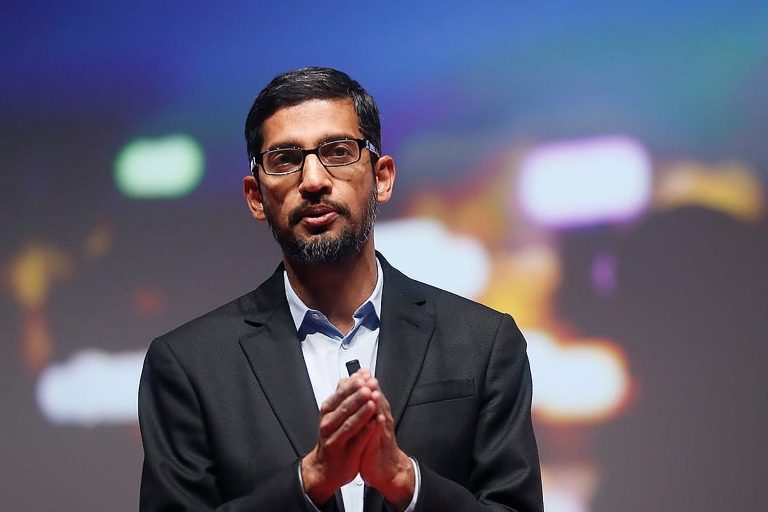Storytelling in Creative Economy: A Path for Creative Entrepreneurs

The creative economy today is a key driver of global growth, generating over $2 trillion in annual revenue and supporting approximately 50 million jobs worldwide. With projections indicating that it could account for 10% of global GDP by 2030, the creative industries—spanning fashion, music, digital services, and more—are more influential than ever. For African diaspora and creative entrepreneurs, understanding and leveraging the power of storytelling is not just a tool for attracting clients; it is a critical strategy for thriving in this booming sector.
Want to learn more about storytelling? Start by downloading the first chapter of The Storytelling Mastery.
This is what we will be considering in this article. So, stay tuned if this is your thing.
The Economic Power of the Creative Sector
The statistics surrounding the creative economy are staggering. The United Nations Conference on Trade and Development (UNCTAD) reports that creative industries represent between 2% and 7% of GDP in the most developed markets, showcasing their significant economic contribution.
The sector has an important economic multiplier effect, where every $1 spent creates approximately $2.5 in wealth for the economy. This means that your engagement in the creative economy doesn’t just benefit you; it fosters broader economic growth and job creation, directly contributing to Sustainable Development Goals (SDGs).
In the music industry alone, projections suggest that global revenues will reach $131 billion by 2030, a reflection of how digital transformation is reshaping the landscape. Similarly, the fashion market is projected to hit a size of $2 trillion.
With creative industries at the forefront of job creation, you can play a vital role in this transformative economic landscape, positioning yourself not only as a creative professional but as a catalyst for economic and social change.
The Power of Purpose-Driven Storytelling
In a recent Financial Times article, “Unlocking the Potential of Africa’s Creative Economy,” it was highlighted that Hollywood’s export of the American dream has contributed hundreds of billions of dollars to the US economy while shaping global perceptions of the country.
The article points out that Africa, with its larger and more diverse population, holds untapped potential for similar success through its own burgeoning film industry.
By telling authentic and varied stories, ranging from action thrillers to period dramas and urban fantasies, Africa will not only entertain but also reshape global perceptions, showcasing its rich cultural tapestry to the world.
Now, you need to realize that as an African diaspora entrepreneur, you have a unique opportunity to connect with ideal clients through authentic storytelling.
See also The Beauty in Contradiction: Celebrating Differences and Unique Stories in the Creative Economy”
In today’s world, where consumers seek deeper relationships with brands, your narrative can serve as a powerful tool to differentiate yourself. Storytelling allows you to convey your values, mission, and vision, enabling clients to understand who you are and what you stand for.
Research indicates that consumers are more likely to engage with brands that tell compelling stories. A 2019 Nielsen study found that 92% of consumers prefer ads that feel like a story. As you harness the power of storytelling, you not only attract clients but also cultivate loyalty and trust, vital elements for long-term success in the creative economy.
Tap Into African Creative Potentials
Unlocking Africa’s creative potential requires strong cross-border collaboration among filmmakers. Partnerships between African nations can pool resources, share expertise, and create co-productions that reflect the continent’s rich and diverse narratives.
By working together, we can tackle common challenges like funding and access to quality equipment, ensuring African stories are told authentically and from multiple perspectives, with the production values needed to compete on the global stage. A crucial step can be establishing a pan-African distribution network.
As you would have also noticed by now about the African film industry, for example, despite growing demand, the industry’s growth is stunted by infrastructure limitations. For instance, in 2022, Nigeria and Ghana had only about 280 movie screens for nearly 252 million people, while France, with a population of 68 million, opened 115 new screens that same year.
See also Navigating Change with Storytelling: How to Thrive in Evolving Markets
There is a need for improvement and technology will be key in making that improvement and overcoming barriers. With increasing internet penetration and widespread mobile phone use, digital platforms offer a prime opportunity to distribute films more widely.
An African streaming service could showcase filmmakers’ work across the continent, transcending national boundaries and fostering unity.
The recent launch of the African Audiovisual and Cinema Commission (AACC) secretariat in Nairobi is a promising step. That is certainly a towards uniting Africa’s creative industries and amplifying its voices in the global creative economy.
The Role of the African Diaspora in the Creative Economy
As a member of the African diaspora, you stand at the intersection of cultures, bringing a rich fabric of experiences that can shape the creative landscape. Your narrative, deeply rooted in cultural heritage, allows you to infuse authenticity and uniqueness into your work.
The African diaspora’s contributions to art, music, fashion, and technology have significantly enriched the global creative economy.
For example, the fashion industry is increasingly recognizing the influence of African designers. Ozwald Boateng, a Ghanaian-British designer, has made waves with his innovative approach to tailoring, marrying traditional African fabrics with contemporary styles.
By showcasing your heritage through your work, you can inspire others and create meaningful connections with clients who share your values and appreciation for diversity.
Furthermore, the African diaspora plays a crucial role in the digital content creation space. Platforms like YouTube and TikTok have provided avenues for creatives to share their stories and connect with audiences globally.
Many creators from the diaspora have built substantial followings by showcasing their unique perspectives and cultural experiences. This highlights the power of storytelling in attracting not just clients but also a loyal community that resonates with your narrative.
Embracing the Industry 4.0 for the Creative Sector
The Fourth Industrial Revolution, or Industry 4.0, is ushering in a new era of creativity and innovation. As a creative entrepreneur, embracing technology is essential for staying competitive.
The creative economy is now one of the largest consumers of digital services, and understanding how to leverage these tools can enhance your reach and impact.
Digital transformation is reshaping industries, and you have the opportunity to harness these changes.
For instance, incorporating AI and IoT (The Internet of Things) solutions into your business model can streamline processes and improve client engagement. Small-scale robotics and AI-based programming are becoming critical in various sectors, enabling you to innovate and deliver high-quality products and services.
An example of this is the rise of virtual reality (VR) and augmented reality (AR) in storytelling. These technologies allow you to create immersive experiences that engage clients in ways traditional mediums cannot.
See also Your 1000 True Fans: A Path to Success for Creative Entrepreneurs in the African Diaspora
For instance, the use of VR in real estate allows potential buyers to take virtual tours of properties, providing a more interactive experience. If you are looking for more practical examples, here are three top ways to embrace Industry 4.0 as a creative entrepreneur:
- Digital Transformation: Leverage digital tools and platforms to enhance creativity and productivity. This includes using software for design, animation, and music production, as well as e-commerce platforms to sell products globally. By embracing digital transformation, creatives can streamline their workflows and reach a wider audience.
- Data-Driven Decision Making: Utilize data analytics to understand audience preferences and market trends. By analyzing data, creative entrepreneurs can make informed decisions about their projects, marketing strategies, and business operations, ensuring they meet the demands of their target audience and stay ahead of the competition.
- Collaborative Technologies: Adopt collaborative tools like cloud computing, virtual reality, and augmented reality to work with other creatives across the globe. These technologies enable real-time collaboration, allowing diaspora creatives to connect with peers, share ideas, and co-create content regardless of geographical barriers.
By staying abreast of these technological advancements, you position yourself as a forward-thinking entrepreneur ready to meet the demands of a rapidly evolving marketplace.
Sustainability and Social Impact in the Creative Economy
In today’s consumer landscape, sustainability, and social responsibility are more than trends; they are expectations. As you navigate the creative economy, aligning your business with sustainable practices can enhance your brand’s appeal.
Consumers increasingly seek out brands that reflect their values, particularly when it comes to environmental and social issues.
The Fashion Industry Charter for Climate Action, launched at the UN Climate Change Conference, exemplifies the shift towards sustainability in fashion. As an entrepreneur, you can integrate eco-friendly practices into your business model, from sourcing materials to production methods.
For example, brands like Patagonia are renowned for their commitment to sustainability and ethical practices, which resonate with environmentally conscious consumers.
Furthermore, the creative economy has the potential to drive social change. By championing diversity, promoting gender equality, and supporting local communities, you can contribute to broader societal goals.
Initiatives such as Girls Who Code and Black Girls Code are empowering young women of color to pursue careers in technology, demonstrating how creative entrepreneurship can foster inclusivity and representation.
The Future of Creative Entrepreneurship in Africa
With governments increasingly recognizing the creative economy as a driver of growth, there is unprecedented opportunity for creative entrepreneurs across Africa.
The African Development Bank predicts that the creative sector could create 30 million jobs in Africa by 2025, emphasizing the importance of investing in this thriving industry.
Emerging trends in Africa’s creative industries—from music and film to fashion and digital content—are reshaping the landscape. The Nigerian film industry, also known as Nollywood, has seen immense growth, becoming the second-largest film industry in the world by volume.
See also Learn About Film Production And Management With Clare Ezeakacha
This success story underscores the potential for African creatives to build scalable businesses that attract global audiences.
As you explore these opportunities, consider how storytelling can amplify your impact. By sharing your journey and the stories behind your work, you can inspire others and contribute to the narrative of Africa’s creative renaissance.
Your voice matters, and your experiences can influence not only your clients but also the broader creative economy.
Conclusion: Creative Entrepreneurs as Pioneers of a New Economic Era
As the creative economy continues to expand, you stand at the forefront of shaping this dynamic landscape. By harnessing the power of storytelling and embracing innovation, you can not only attract ideal clients but also drive economic and cultural transformation on a global scale.
As you navigate this journey, remember that your story is your greatest asset. By sharing it authentically, you can foster connections that lead to lasting relationships and business.
Want to learn more about storytelling? Start by downloading the first chapter of The Storytelling Mastery.




